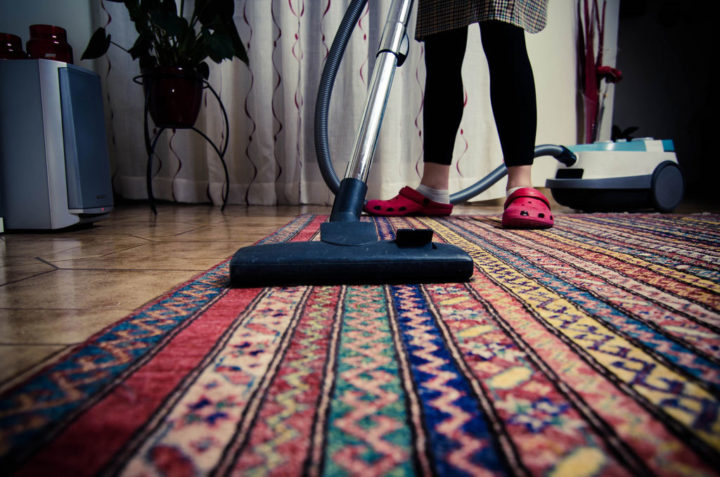Roast dinners feel the heat in EUnergy EUfficiency shocker
Newspapers just love the idea of cutting energy bills – sometimes
By George Smeeton
Share
Last updated:
By Richard Black, ECIU Director
Good news: The Sun, Britain’s biggest-selling paper, is campaigning to reduce energy bills.
‘Nearly 15,000 people have joined The Sun’s People Power campaign to cut up to £300 off energy bills,’ wrote consumer editor Daniel Jones in October. By December, it claimed to have saved readers £1.5 million.
Strange, then, to find Political Editor David Wooding at the weekend railing against new measures that – er – will save Sun readers money by reducing their energy bills.

The difference? The latest energy saving moves, across a range of household appliances, come from Europe. And in the current UK press hierarchy of hate, detestation for all things EU trumps love for saving energy and money.
As David put it: ‘Meddling EU chiefs are targeting the Sunday roast in their latest bid to make us save energy’.
The Sun’s fellow-travellers cooked on the same hob.
For Anil Dawar in the Express, improving the energy efficiency of cookers amounts to ‘Brussels bureaucrats putting the Sunday roast at risk by targeting ovens to advance their green agenda’, and ‘yet another case of the European Com- mission (sic) interfering in private lives’.
(Surely you meant ‘con-mission’? Come on Anil, this stuff isn’t hard!)
The Times deployed the ‘diktat from Brussels’ meme, The Mail recycled the familiar spectre of a threatened Sunday roast, while even Sarah Knapton’s excellent and nutritious Telegraph article had to be garnished on top with a sprig of ‘ultimate breakfast-time interference from Brussels’.
Yeah, so we like reducing energy bills in Blighty; except when they’re reduced by ‘diktats from Brussels’. Energy saving, yes please: EUnergy saving, no thanks.
Topsy-turvy on the trilemma
When you divide the argument into its component parts, it’s a somewhat strange picture.
From time to time the European Commission does come up with measures that are, if you’ll pardon the phrase, half-baked. Other things, some would argue, are against the British national interest.
But this is neither. The three UK political parties with the most MPs (and five of the most popular six if we include the Greens and SNP) all want to tackle the energy ‘trilemma’ – reducing bills, increasing Britain’s energy independence and cutting greenhouse gas emissions.
UKIP would quibble only with the last of those. So these new regulations (which cut energy waste from TVs, coffee machines and other appliances as part of the ongoing Ecodesign programme, saving an estimated 9% of EU electricity consumption, with more to come on cookers and other things later in the year) score two out of three even on their agenda.
So in this case, the Commission is making policy that is aligned with the UK’s national interest, as defined by all the main political parties. And it is hard to imagine anyone in the big world outside Westminster who would advocate increasing energy bills, increasing reliance on Vladimir Putin’s goodwill and increasing carbon emissions.
Then there’s the sanctity of the Sunday roast – a concept that the papers concerned know, if they read their own output, to be nostalgia.
As the Telegraph’s Leah Hyslop reported only in August, “…the number of roast dinners cooked in Britain dropped by eight percent in the last six months… a study in 2013 found that a staggering 24 percent of families sit down to a roast dinner just once a year, on Christmas Day…”
And the Mail’s Mario Ledwith wrote about our changing mealtime habits last year under the headline: ‘A family dinner? We'd rather eat in front of the telly: How just one in 50 families enjoy once-traditional weekend meal’.

In fact, assuming that the Ecodesign regulations have any impact at all on cooking quality – which, I wager, they won’t – they’re far more likely to affect the French, for whom the tradition of family mealtimes has hardly changed.
So wouldn’t this be a ‘diktat from Brussels’ to be cherished?
Similar bizarreness occurred last year during the reign of terror imposed on Britons by new rEUgulations limiting the power of vacuum cleaners.
The Telegraph’s Sam Marsden managed to be somewhat outraged by the affair.
But a few years previously the paper had deployed his colleague Rebecca Lefort to run ‘an experiment spanning five decades of cleaning power’ – comparing the performance of ‘modern, hi-tech, high-wattage’ vacuum cleaners against ‘traditional lower-wattage models’.
Her conclusion? ‘There may be some method in the Eurocrats’ apparent madness. The 1980s machine – which has a power rating less than a third that of the most recent model’s (sic) – emerged victorious’.
Meanwhile, both the Times and Telegraph referenced criticisms from Sir James Dyson who argued, among other things, that the rEUgulations should have been tougher.
Too tough, and yet not tough enough – both in the same time, at the same place. Remarkable.
Scandal ahead!
Factually, the basic argument is garbage.
As anyone knows who has studied science in school, energy efficiency is all about how effectively the energy is used. More efficient devices draw less energy overall, but deploy the same amount of energy usefully as their less efficient counterparts.
You can choose to burn a certain amount of energy running or cycling. You’ll get much further on the bike, because it improves vastly the efficiency of the humble human body.
(And cripes, now that Brits are better at cycling than the Belgians, there’s no need to think about banning bikes, despite their higher EUnergy EUfficiency!)
Informed readers know all this. So, one presumes, do the journalists concerned, and their editors.
Yes, we all know that particularly in election time the facts must be warped to the overarching narrative of the day, which – for the papers concerned – is the UK’s relationship with the EU.
Fair enough – it’s a free press, and that’s essential in a free society. But the price of the warping is, frankly, not being taken sEUriously.
What I’m looking forward to is seeing how this element of the press – which remarkably includes five of the big national nine (Sun/Times/Telegraph/Mail/Express) in an industry where plurality of ownership is supposed to bring diversity – handles the next scandal: EUlectrons.
Yeah, that's right. Five or six new interconnecting cables are due to be built over the next few years, linking the UK grid with neighbouring countries. They'll cut energy bills, increase independence from Russia and the Middle East, and cut carbon emissions.
The downside is that they'll be sending an ever increasing stream of foreign, lily-livered, incompetent, bungling bEaUrocratic EUlectrons – some of them possibly generated in power stations near Brussels(!) – to clog up our proud British appliances, even those cooking the Sunday roast – you know, the ones made by companies like Bosch, Siemens, Smeg and Miele.
In return, we’ll be sending our fine upstanding British bulldog electrons to power Europe.
I can feel the fEUry already. Give us a rEUbate!
Share